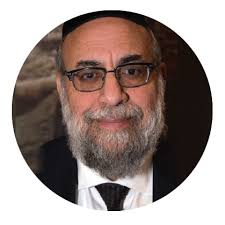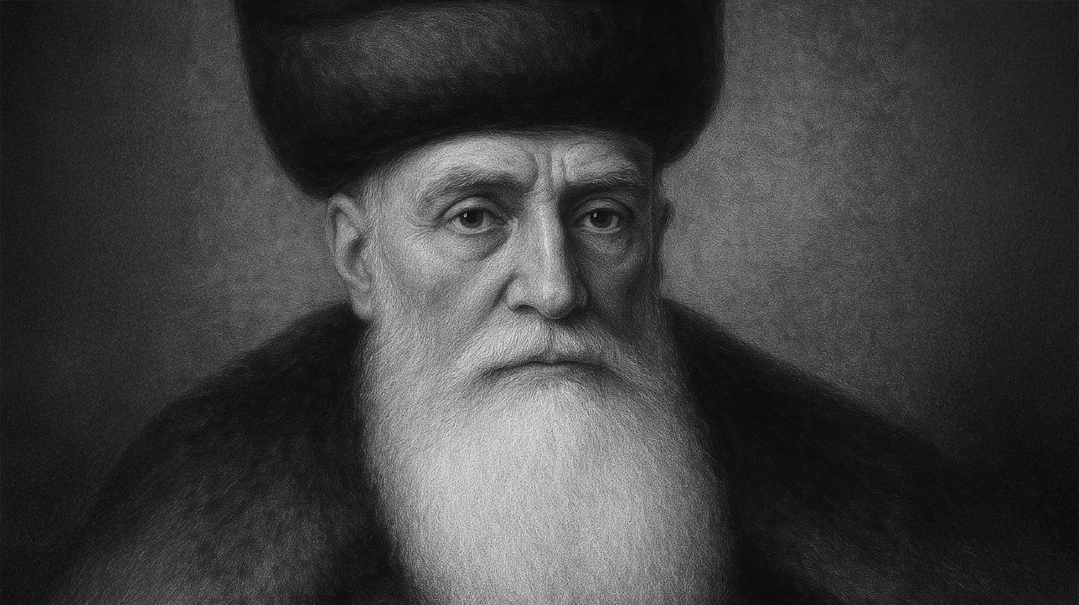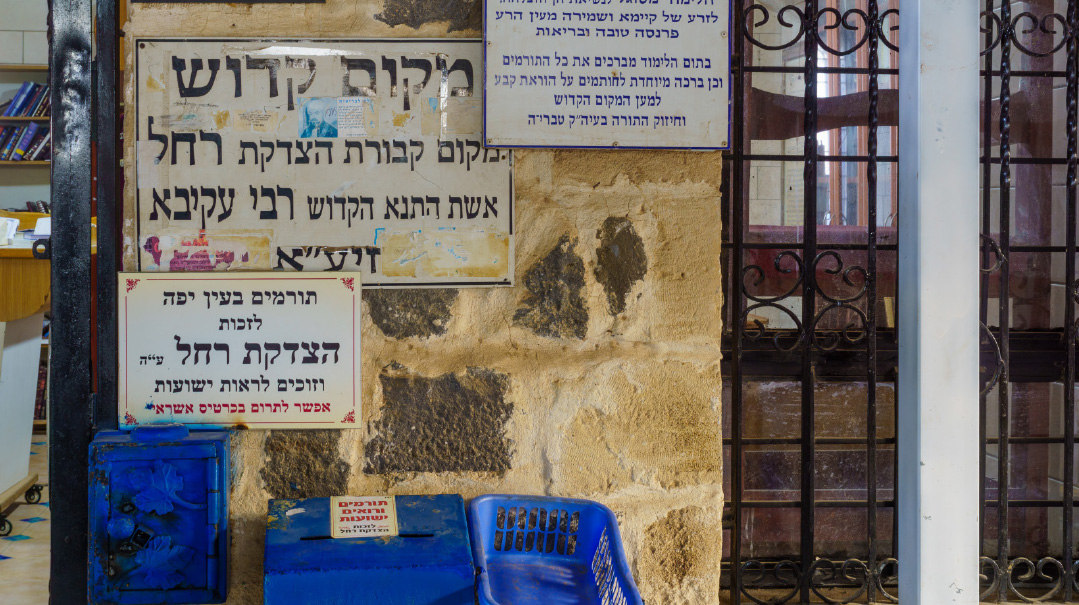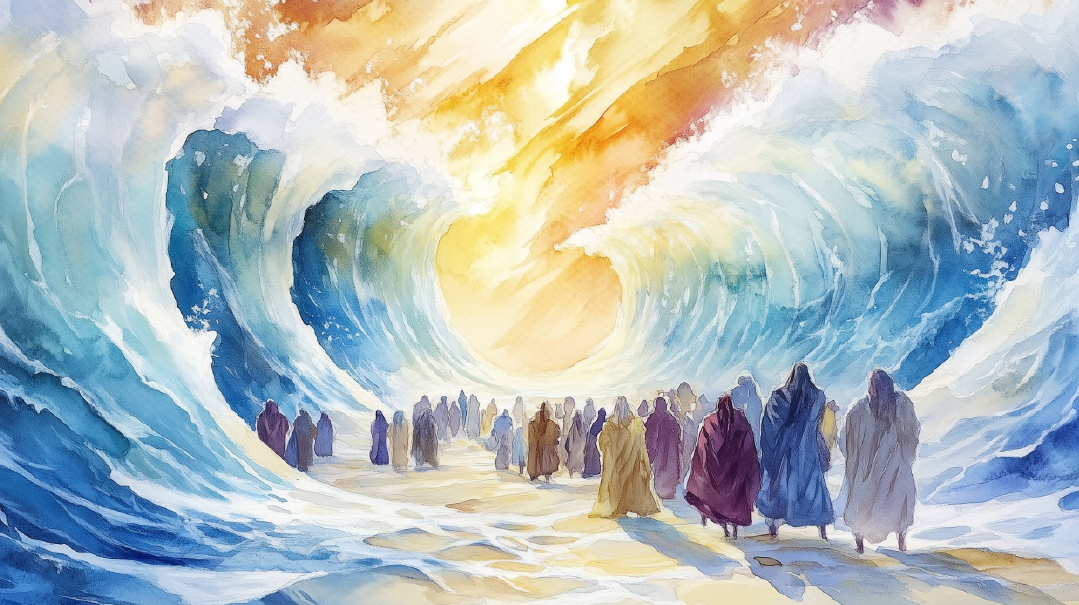The Av to Elul Challenge

The question Klal Yisrael should be asking itself is: Are we truly ready for the avodah of the month of Elul?
R
av Yisrael Salanter z”l, the founder of the mussar movement, shared a teaching with his talmidim that has been passed down to us about an important connection between the months of Av and Elul. In the month of Av, we are called upon to first work on bein adam l’chaveiro, repairing our interpersonal relationships; and only after that, in the month of Elul, can we focus our attention on bein adam laMakom, our relationship with HaKadosh Baruch Hu.
We now find ourselves in the special month of Elul; when we reflect back on Av, how well did we succeed in our efforts on bein adam l’chaveiro during the previous month?
Even the most casual observer of the current situation in Eretz Yisrael cannot help but conclude that our avodah for the month of Av must be far from complete. And the question that Klal Yisrael should be asking itself is: Are we truly ready for the avodah of the month of Elul?
The Alter of Kelm once gave a powerful mashal to describe our complicity in preventing the Beis Hamikdash from being rebuilt:
A person began shouting in the marketplace, “Help, help, my father is dying!” When people began rushing over to assist him, they saw that the son was actually standing over his father, choking him.
They were shocked. They said to the son, “Are you insane? If you want your father to live, why are you choking him?”
The Alter explained that we are not really any different. We mourn over Churban Bayis, but we freely engage in the very same actions that caused the destruction in the first place.
Some readers may be thinking: What is this columnist talking about? The whole situation in Eretz Yisrael is being perpetuated by antireligious haters on the leftist fringe of Israeli society. What does this have to with our avodah? What does it have to do with our wonderful community, which has spawned incredible chesed organizations like Hatzoloh, Chaverim, Bikur Cholim, and countless other such bein adam l’chaveiro initiatives?
The answer is: everything!
Several decades ago, the city council in Ramat Gan, the city next door to Bnei Brak, scheduled a vote to allow public transportation on Shabbos. Rabbanim held an emergency meeting, and calls went out for a major demonstration. When the elderly gadol hador, Rav Shach ztz”l, was asked if he would support such a demonstration, he suggested that a campaign to increase kevod Shabbos in Bnei Brak be organized. He explained that if our shemiras Shabbos were up to par, then this could never have happened in Ramat Gan.
Similarly, when a large left-wing modern school in Riverdale was contemplating the removal of Gemara from its curriculum, a group of askanim approached Rav Yaakov Kamenetzky ztz”l to ask him to sign a cherem against the school. He replied that we should instead be mechazeik the learning in our own chadarim and yeshivos, because if we were stronger, then this would never have come to pass.
At this point, some of you are probably even rolling your eyes, thinking, “What do we have to do with what is going on in Eretz Yisrael? The young woman who applied to be a lifeguard and was offered a job at the women’s beach in Kiryas Sanz,and incredulously responded, ‘I can’t take that job, because if I saw a chareidi woman drowning, I wouldn’t save her, so I can’t work there’ — how is that our responsibility?
“Or the elderly Meretz party volunteer who tried to toss a stink bomb into the maternity ward where young chareidi mothers were recuperating — if he were successful, they would be forced to run out into the street in their weakened state [Baruch Hashem, he was stopped before he could carry out this horrific deed].
“These are prime examples of sinas chinam. What connection at all could there be to us?”
The Netziv teaches that there is a very strong connction to us. He explains that when Chazal refer to sinas chinam as the root cause of the destruction of the Beis Hamikdash, they don’t only mean the sinas chinam we see in these types of scenarios. They also mean the type of behavior we see when someone holds a view different from yours in inyanei yiras Shamayim, and he calls you an apikorus and maybe even a Tzaduki. That is also sinas chinam.
In addition, over the last few months, there has almost not been a day without painful news about another terrorist attack in Eretz Yisrael, another killing and another family forever changed as a result.
Well, what does this have to do with us? Unfortunately, it’s just a way of life there in Eretz Yisrael, where we are surrounded on all sides by our murderous cousins. We mourn for them and we feel for them, but what does it have to do with us?
Chazal tell us that it has everything to do with us. Yalkut Shemoni in parshas Shoftim tells us of a dialogue between HaKadosh Baruch Hu and the malachei hashareis. They asked HaKadosh Baruch Hu, “Why are You so concerned with the honor and dignity of birds and animals that You require a person who shechts them to cover their blood that spills on the ground, yet You are not concerned about the blood of Your children, Klal Yisrael, whose blood is spilled like water in the hills of Yerushalayim and is not given to burial”?
And HaKadosh Baruch Hu responds to them with a most painful response: “Because they have sinas chinam for one another.” Hence Hashem lays out for His beloved children to see that all the bloodshed over the millennia stems from one source — and that source is sinas chinam.
When Rav Moshe Grylak z”l accepted the position as editor of this important magazine, he went to the gadol hador Rav Aharon Leib Steinman ztz”l for advice and a brachah. He once shared what the gadol told him at that time, and he never, ever forgot it. The gadol told him that he should emphasize again and again the importance of interpersonal relationships and the significance of being careful in matters of bein adam l’chaveiro.
Rabi Grylak asked him to explain why this is so important, when there are so many other important communal and national issues to speak about. The gadol responded with something that he had heard from the great Chazon Ish ztz”l decades earlier that had a profound effect upon him: The steep decline in interpersonal relations among the Torah-observant population had helped pave the way for the terrible gezeirah that befell the Jews of Europe.
So this is all about each and every one of us. And it is also on some level because of our own personal differences with others.
Several months ago, I put in great time and effort into bringing this issue to the forefront of our collective consciousness, in the hopes that maybe we could all work together to do something about it. I spoke to three of the most community-minded gedolim in the American Torah world to ask them what we can and should be doing. All separately had the same response: This is a question for the zakein hador in Eretz Yisrael, and I should go to him for direction and then report back.
We had the great zechus to be in Eretz Yisrael for Shavuos, so we made arrangements to sit with Rav Gershon Edelstein ztz”l on the Monday after Shavuos to receive direction from him. Unfortunately, the very next day, on Tuesday, was his levayah.
I have seen that others who have lived in Eretz Yisrael for decades expressed the view that while this current conflict may be larger and noisier, it is really just the same conflict between brother versus brother that has been roiling for many years. This is just more of the same.
With the greatest respect and humility, I beg to differ.
More than 40 years ago, I was flying back to the United States after spending several months learning in Eretz Yisrael. When I boarded the plane, I noticed that the Lakewood rosh yeshivah, Rav Shneur Kotler ztz”l, was sitting all by himself on the same flight. As soon as we were airborne, I approached him and asked if I could speak with him. His greatness in Torah was matched by his humility and unlimited patience, so he invited me to sit in the empty seat next to him. I did so, not getting up until we landed in JFK twelve hours later.
Hoping to gain some nuggets of wisdom at this incredible opportunity, I said, “Can the Rosh Yeshivah share some things about his father Rav Aharon Kotler ztz”l that most people are not aware of, the type of things that only a son has seen and heard?”
The Rosh Yeshivah then shared some incredible vignettes from both his father and mother that I treasure to this very day. However, one thing in particular that he told me was life changing.
He shared the words his father had related to him from what he had heard from Rav Elya Lopian ztz”l on his first visit to the States after the war. When they met, Rav Aharon said to him, “Oy, Reb Elya, we just went through Milchemes Gog u’Magog.”
Rav Elya responded to him that he had a kabbalah that came directly from the Gra that Milchemes Gog u’Magog will not be a battle pitting the nations of the world against Klal Yisrael, but rather a battle between Yidden — between those who are yarei devar Hashem (those who fear the word of G-d) and those who are not. The Rosh Yeshivah related that his father was very shaken up when he had heard that frightening interpretation from the Gra.
I am not privy to happenings in the World of Truth, to what is and what is not going on in this world of falsehood. However, deep in my soul, I feel that what we are seeing today, the volume of rhetoric and the level of hatred between brothers, is not something that we have seen before.
Could we be witnessing the unfolding of the Vilna Gaon’s vision, that in Ikvesa d’Meshicha, the days before Mashiach’s arrival (Rav Chaim Kanievsky ztz”l said we are now in this tekufah), this is how the prophecy of Milchemes Gog u’Magog will be fulfilled?
HaKadosh Baruch Hu is defining for us not only the physical boundaries of Eretz Yisrael, but the spiritual boundaries as well: who will be included in the category of yarei devar Hashem and who will not. As the Chofetz Chaim already predicted close to 100 years ago, the final Geulah will be the same as the geulah from Mitzrayim, and only those who believe that HaKadosh Baruch Hu will carry out His plan as promised will be zocheh to be redeemed.
If this is what is really happening in Eretz Yisrael today, then it’s not just their issue — it’s ours as well. Every Yid in the world is included and has to be involved in the process.
But involved how? Of course, teshuvah is always in order, on any and every level; but maybe it’s even more important now to take responsibility for looking a bit more closely at our own actions or inactions in interpersonal relationships. Have we done enough? Is there someone out there who needs to hear from us? Maybe we need to ask mechilah for something, or maybe we just need to offer some words of chizuk?
Maybe if if each of us just does one small part, whatever it is that needs to be done, then the next time a chareidi woman is Rachmana litzlan drowning, a secular lifeguard will rush in to save her in the zechus of our actions. The Chazon Ish’s insightful and frightening comment in his conversation with Rav Aharon Leib ztz”l should alone be enough to turn us into more sensitive Yidden.
Maybe now is the time to sit across the table from other Yidden who think differently from us, dress differently from us, and daven a different nusach than we do. Maybe that is the call of the hour as the month of Av meets the month of Elul.
There is a well-known mashal about two wealthy brothers with very different appetites who would never would join together for a meal. One ate only milchigs and the other ate only fleishigs. One would dine on the finest cheeses and pasta dishes and the other would dine on the finest cuts of meat. Their business began to falter, so the milchigs brother began to eat the cheapest cheese and the fleishigs brother began to eat only chicken.
When their business failed completely, both brothers could only afford to eat potatoes. One brother said to the other, “Before, we always had to eat separately. Now that we are both eating only potatoes, why don’t we sit together at the same table?”
Maybe today we have come to the realization that it’s time to sit at the same table.
We passed through the month of Av, but did the avodah and the lessons of Av pass through us? We would be so much more prepared for the avodah of Elul, to reconnect to HaKadosh Baruch Hu in the fullest sense possible, if we could open our hearts and our minds to what we should have done (or should not have done) in Av. That awareness alone would put us in good stead for the challenge of Elul.
May Elul bring with it an end to strife between brother and brother, may sinas chinam be abolished from Klal Yisrael, may the bitter battle of Gog u’Magog be over and done with, and may we all merit to enter the new year fully prepared to welcome the final Geulah. And may we all finally merit to come together on Har Hakodesh b’Yerushalayim. May it come speedily in our day.
This article is written l’zecher nishmas Sara Chaya z”l bas Rav Chaim Aryeh Zev
Rabbi Aryeh Z. Ginzberg is the rav of the Chofetz Chaim Torah Center of Cedarhurst and the founding rav of Ohr Moshe Institute in Hillcrest, Queens. He is a published author of several sifrei halachah, and a frequent contributor to many magazines and newspapers, where he writes the Torah hashkafah on timely issues of the day. He is also a sought-after lecturer on Torah hashkafah at a variety of venues around the country.
(Originally featured in Mishpacha, Issue 976)
Oops! We could not locate your form.







